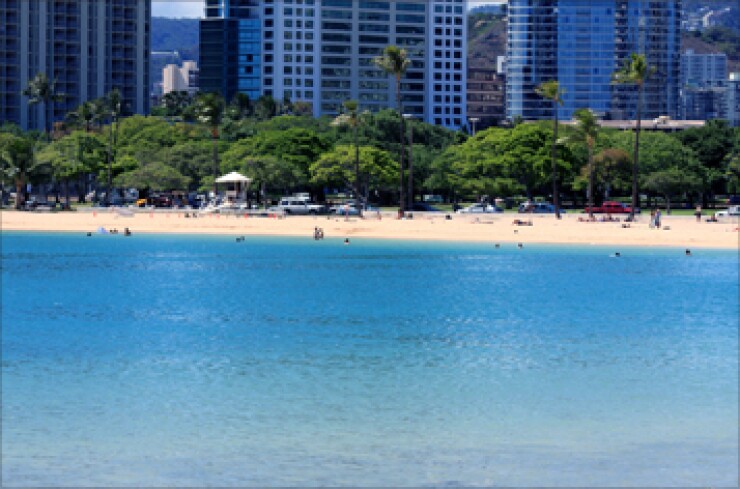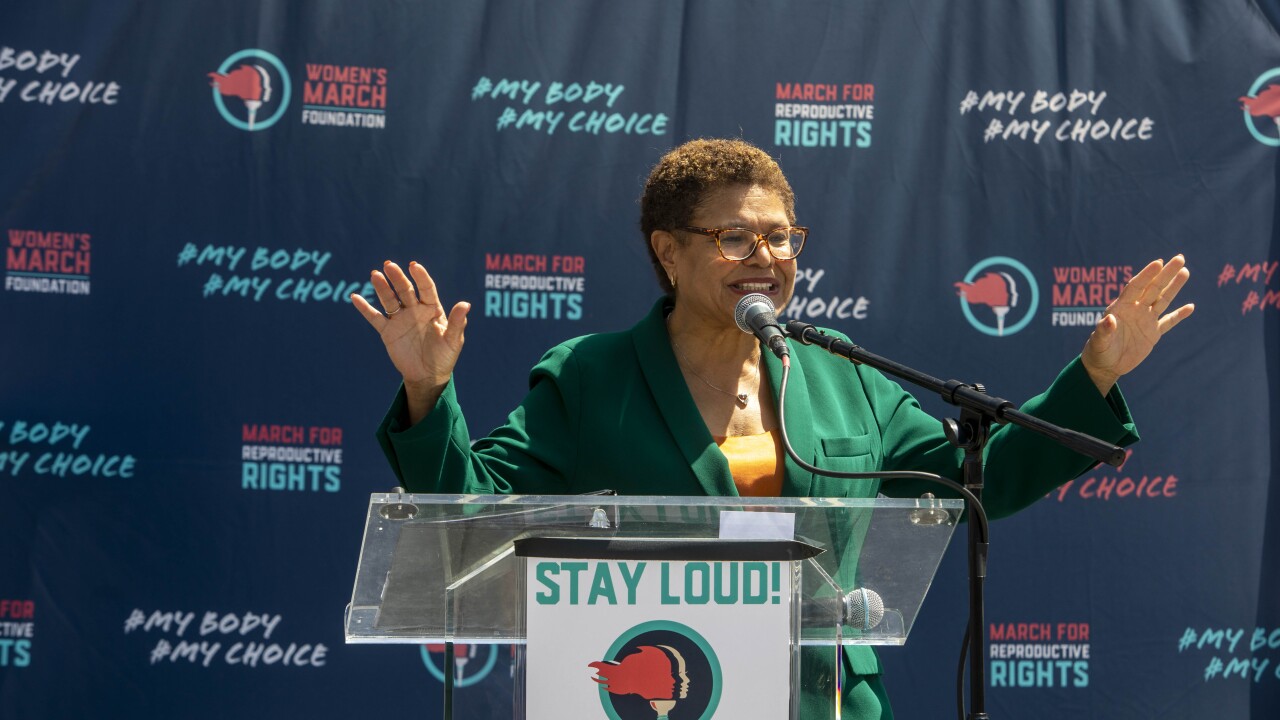
LOS ANGELES — Billions in upgrades made to Honolulu's wastewater treatment systems were not enough to prevent two huge sewage spills after Tropical Depression Kilo dumped more than six inches of rain on Oahu in a 24-hour period Monday.
An estimated 500,000 gallons of wastewater surged through manhole covers near Ala Moana Center, the upscale shopping center between Waikiki Beach and downtown Honolulu, and into the streets and nearby waterways, according to Honolulu Mayor Kirk Caldwell's office.
Also on Monday, another 187,000 gallons of partially disinfected water was released into Wahiawa Reservoir in Oahu's Central Valley from a wastewater treatment plant.
Famed Hawaii beaches, including Waikiki, remained closed Wednesday despite clean-up efforts.
Honolulu's sewer system is in the midst of billions of dollars in upgrades as a result of a consent decree reached with the U.S. Environmental Protection Agency in 2010 after the city had several Clean Water Act Violations. One of the violations stemmed from a 2006 sewer spill that spewed 50 million gallons of raw sewage into the Ala Wai Canal and onto Waikiki beaches.
Honolulu sold $699 million in wastewater revenue bonds on July 21-22 that included $200 million in new money to help fund the $5.9 billion in capital improvements through fiscal year 2030 required by the decree.
The department has already completed $1.9 billion in projects since 2001; and has an equivalent amount in outstanding debt, according to a Fitch Ratings report issued ahead of the sale.
Ala Moana Park was expected to reopen Wednesday, but the beaches remained closed pending water tests being conducted by the Hawaii Department of Health at 20 locations throughout Oahu, Keith Kawaoka, the department's deputy director of Environmental Health, said during an Aug. 25 press conference.
Lori Kahikina, director of the city's Department of Environmental Services, said the spill was at Ala Moana Center, and does not affect Waikiki Beach.
"Waikiki Beach is closed as a pure abundance of caution," Kahikina said. "Waikiki is closed, because of concerns related to brown water, not because of the sewage spill."
The entire island of Oahu has brown water advisories, because of concerns of water spilling into the ocean from storm drain runoff, said Ross Sasamura, director of the Department of Facility Maintenance.
The city is conducting tests to make sure that flooding at Honolulu Zoo didn't result in animal fecal matter ending up in the ocean. The main issue is motor oil and yard waste that ends in storm drains and flows into the ocean during heavy rains, Sasamura said.
The city's Department of Environment Services received a notice of permit non-compliance this week after partially disinfected secondary treated effluent was released early Monday from the Wahiawa Wastewater Treatment Plant into the Wahiawa Reservoir, city officials said Wednesday.
The reservoir, Hawaii's second largest, is used to irrigate agricultural fields, including the Dole Pineapple Plantation, and flows from northern Wahiawa to Oahu's North Shore, where it empties.
The effluent went through full secondary treatment and partial ultraviolet disinfection, according to environmental services officials. One of four banks of UV lights did not activate during the process. The city's Department of Environmental Services notified the state Department of Health, the latter is conducting water tests.
Even before Monday's wastewater spills, the DOH had issued a statewide brown water advisory due to the heavy rain. Parts of Oahu received nearly 6 inches of rain in a 24-hour period of Monday. More rain is expected.
The public was warned in the DOH advisory to "stay out of flood waters and storm water runoff due to possible overflowing cesspools, sewer, manholes, pesticides, animal fecal matter, dead animals, pathogens, chemicals, and associated flood debris."
"Not all coastal areas may be impacted by runoff," the advisory states. "If the water is brown, stay out."





